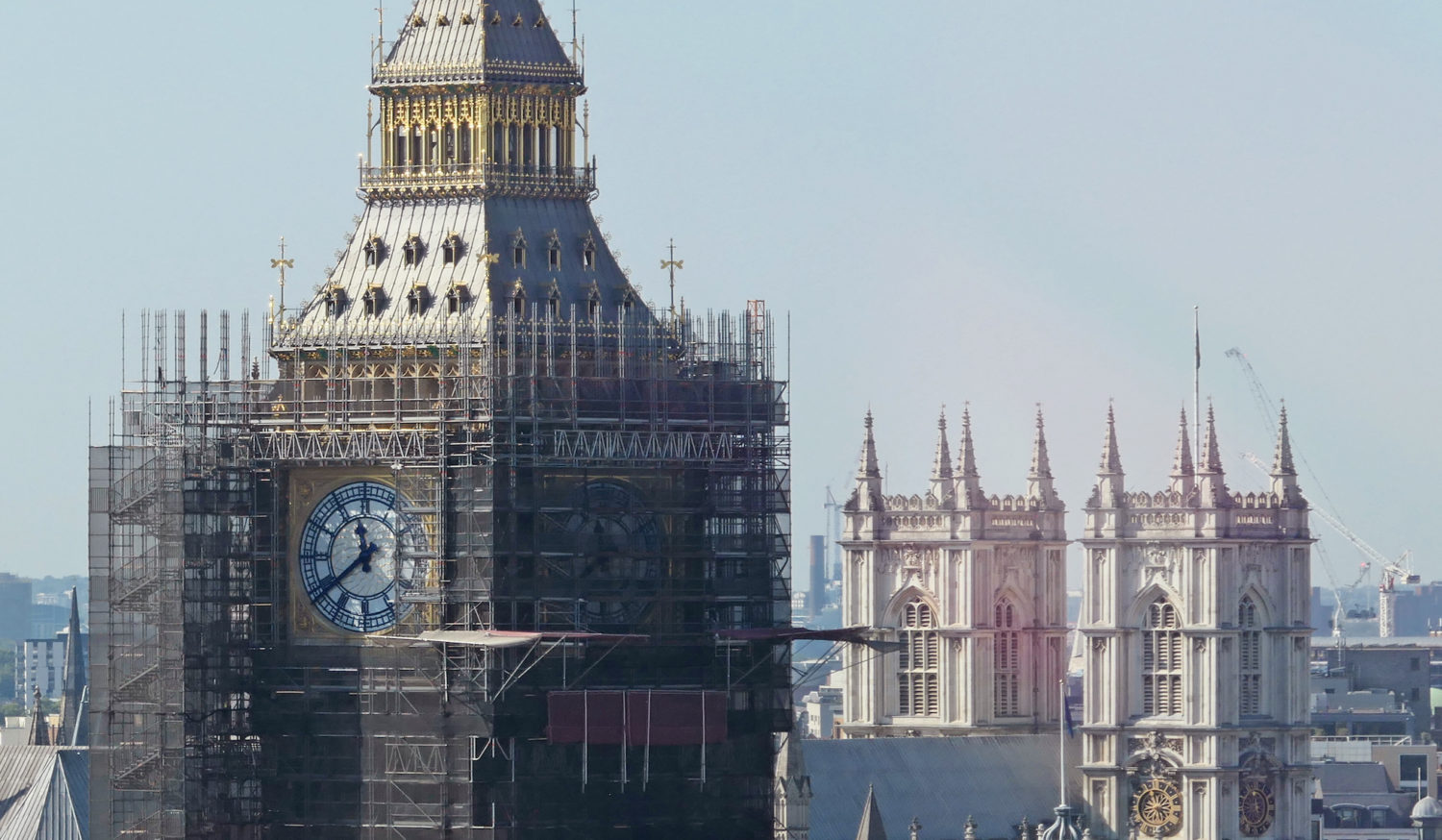New foundations
Westminster isn’t working. Labour must back electoral reform, writes Justina Cruickshank.
There are 21 candidates, and just 43 voters. Every single one is a hereditary aristocrat. And they can pick three Lords to vote on our laws for life.
These hereditary peer by-elections are happening as I write and are one of the most visible absurdities in Britain’s warped political system. But they are just the tip of the iceberg. Voters are systematically ignored in the UK – and not just through the elitist House of Lords.
It is fair to say that if, in 2021, you were sketching out the structures and features of a new democracy it would look a lot different from the one we have here in the UK.
The House of Lords is one of the only chambers in the world to have hereditary and clerical members in it by default.
In the Commons, Westminster’s voting system, once exported around the world, has been wholly rejected by virtually every modern democracy anywhere, with the UK remaining the only country in Europe (except Belarus) to continue to use first past the post for its main elections.
There is a growing sense of frustration and dissatisfaction with the state of our democracy. While issues of democratic reform were once seen as fringe – that in the face of more pressing issues such as the economy, the environment and affordable housing that tend to dominate the progressive agenda – the effects of our failing system are becoming ever clearer.
Polling from earlier this year for the Electoral Reform Society found that two-thirds of the public feel powerless over decision-making and think that they have little or no opportunity to influence decisions made at Westminster. And who can blame them? Across the UK, more than 22 million votes (70.8 per cent) were ignored because they went to non-elected candidates or simply added to an MPs already healthy majority.
But this is not just about statistics. This is about millions of people feeling sidelined at every election, often going decades without any representation. The phrase ‘my vote doesn’t count’ is a doorstep issue, and it is one that a party committed to equality needs to respond to.
The stark figures showing that the public feel more distant from Westminster politics than ever come amid growing calls for greater decision-making powers to be given to the nations and regions of the UK – with debates on devolution continuing to rage in Scotland, Wales and England.
And the awareness of the need for democratic reform is growing within the Labour party – from Andy Burnham leading the charge for greater devolution to Greater Manchester to the formation of a Constitutional Commission, led by Gordon Brown, to set out an agenda to spread ‘power, wealth and opportunity’ out of Westminster.
But a fish rots from the head down. That means a commission can not simply look at off-loading powers without reforming the centre. That means building a united franchise across the UK – something those involved in the commission seem to have recognised.
In Wales, Scotland and Northern Ireland, voters are used to their votes being genuinely reflected in fair representation. They look to Westminster, and see an unaccountable, unresponsive behemoth.
We are witnessing funding being poured into pro-union campaigns from central government – without any attempt to ask why so many Scots feel alienated in the first place. Instead, cash is doled out to a handful of swing seats.
The recent Towns Fund scandal – where ministers handpicked swing seats for millions in funds – was not an anomaly: it is a symptom of deep unease in our democracy.
Inbuilt bias
The Scottish National Party’s near total domination of Scottish seats in Westminster is a prime example of how winner-takes-all politics silences voters and skews the debate. The SNP (which, to its credit, backs proportional representation) walked away with 48 out of 59 seats in 2019 despite getting less than half the vote. Labour, which polled at nearly 20 per cent of the Scottish vote, was left with just one. It is proportional representation which is providing a platform for Labour to rebuild in Scotland, maintaining its voice in Holyrood while being disproportionately wiped out at Westminster.
Our current electoral system is one that hands a big advantage to the Conservatives – and will do so even more following the current boundary review. In the 2019 election, it took on average 50,835 votes to elect a Labour MP, whilst only 38,264 votes were needed to return a Conservative MP.
Between 2017 and 2019 the Conservatives increased their vote share by just 1.2 per cent yet gained 48 seats and walked away with a majority of 80.
First past the post is a system that works when there are only two parties – but for a long time this has not been the case.
In the last couple of years, the Conservatives have succeeded in capturing the right of the political spectrum – eating up votes that had previously gone to the Brexit party and, before it, UKIP (which, let us not forget, got nearly 4 million votes in 2015). However, Labour has not managed to do the same with left of centre votes and the ‘progressive’ side of politics remains much more fractured.
Research done before May’s local elections by Politics for the Many – the trade union campaign for political reform – found that in 85 per cent of seats up for election the number of ‘progressive’ parties (typically Labour, the Liberal Democrats or the Green party) outnumbered that of parties on the right (typically the Conservatives).
In almost half of council wards, the Conservatives were on one side and three more progressive parties in the shape of Labour, the Liberal Democrats and the Greens were on the other.
The very nature of our party system is itself a barrier to a more progressive politics. And unless something changes, the Conservatives will keep on winning.
A proud movement
Support for proportional representation within the Labour party has a long history. Keir Hardie backed the Electoral Reform Society (then called the Proportional Representation Society) and as early as 1913 the Independent Labour Party, one of the constituent parts of the new Labour party, passed policy in support of a proportional voting system.
Over the years, however, as Labour gained power from the current system, the pressure for reform faded away. But once again, it now feels that we are at a point in our politics where the importance and urgency for change are becoming ever clearer.
Last September saw the launch of Labour for a New Democracy – a new coalition, bringing together Labour MPs and groups such as Open Labour, Compass and the Electoral Reform Society, to build support for electoral reform within the party.
Back in 2020 during his leadership campaign Keir Starmer vowed to consult party members on electoral reform and to include it in a constitutional convention saying the party must address the fact that many people ‘feel their voice doesn’t count.’ Since then, pressure has continued to grow – from Momentum backing proportional representation earlier this year, to the Labour-affiliated trade union ASLEF in May. It is a powerful coalition for political equality.
Tory plans
In this year’s Queen’s Speech, the government unveiled plans for an electoral integrity bill to ‘protect our democracy’, including proposals to introduce mandatory photo ID at the polling station.
The plans, which will cost up to £20m per general election to implement, could see millions of people who lack ID prevented from casting their vote, while at the same time making it harder for everyone to vote. We have also seen home secretary Priti Patel MP announce her hopes to impose first past the post in mayoral and police and crime commissioner elections – affecting every single voter in England and Wales.
This is a power grab, designed to remove voters’ second preferences. Priti Patel knows that the left vote is more ‘split’ under first past the post – something that has been true since the foundation of the Labour party – and is capitalising on it. Meanwhile, Brexit itself represented the biggest constitutional shift the UK has seen for decades. The Tories are making big changes to our constitution: because they know the long-lasting impact it can have. They are reshaping the state.
And the truth is that reforms to our political system are too important to be left in the hands of the Conservatives. Questions about where power lies, who makes decisions, and how our institutions work – or don’t – affect political outcomes.
It is time to build new foundations for our politics, based on values of political equality, diversity and cooperation.
Labour cannot opt out of these conversations. Westminster is crumbling. What will take its place?
Image credit: Amanda Slater/Flickr

